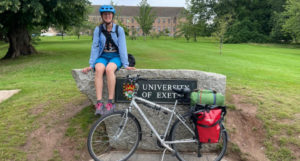Community gardening groups bring benefits for people living with dementia and their carers

Photograph from Gustavo Fring on Pexels
Community gardening groups can bring multiple benefits for people living with dementia and their care partners, according to a new study by researchers at the University of Exeter and Natural England.
People with dementia, their family members, and group leads, were interviewed about their experiences as part of the research, which looked at the impact of community gardening groups. Individuals reported that taking part in these groups helped people living with dementia to engage and connect with others and provided cognitive and sensory stimulation, as well as opportunities for exercise and access to freshly grown produce.
Researchers spoke to people from seven gardening groups, who described how the varied activities provided people living with dementia with a sense of purpose and offered opportunities to feel challenged. They also emphasised how doing activities that celebrated their skills and personal history had a positive impact on how they felt about themselves.
One participant said: “When I was diagnosed with Alzheimer’s, I thought, ‘What am I going to do now?’ You feel in sort of a lost state, but since I joined it has been a new lease of life, I’ve got a sense of purpose [and] things that I enjoy, things that I used to do.”
There is a growing body of evidence that engagement with nature is beneficial for people with dementia, but previous research has tended to focus on people living in care home settings rather than in the community, where the majority of people with dementia live. This qualitative study focused on seven community gardening groups and sought the views of people with dementia, care partners and group leaders to explore how and why these groups impact the lives of people living with dementia.
Co-author Dr Helen Foster-Collins, Lecturer and Postdoctoral Research Fellow at the University of Exeter, said: “We know that around two thirds of people with dementia in the UK live at home, so finding ways we can support individuals with dementia and their carers can have a massive impact on quality of life. Through this project we have been able to identify common themes on what works well, the beneficial impacts, and also some of the challenges of running these groups.”
Co-author Dr Ruth Lamont, Principal Adviser at Natural England, said: “Joint activities in green areas such as allotments, undertaken with the support of knowledgeable leaders and volunteers who provide a safe and welcoming environment, have potential to create unique spaces in which people with dementia can feel part of a community and empowered to engage in activities which provide purpose and challenge.
“These groups can also have a real impact on care partners, who can frequently feel exhausted and isolated, to gain vital moments of respite, support and advice from others.”
The paper, ‘I can still swing a spade’: a qualitative exploratory study of gardening groups for people with dementia, is available via Open Access, and has been published in the journal Ageing and Society. A more practical report is also available, which will help inform and inspire those looking to fund and deliver similar groups in the future.
This work was supported by Economic and Social Research Council IAA Project Co-creation award under the grant ‘Optimising the design and implementation of community-based gardening initiatives for people with dementia’.



